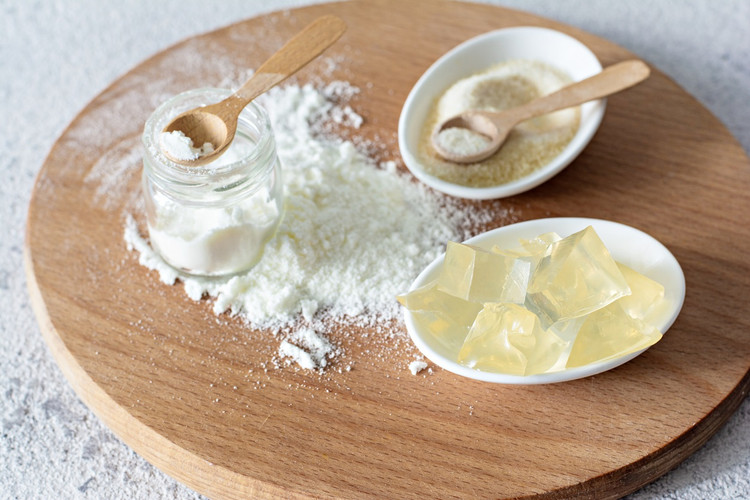Gelatin - Nature's powerhouse protein and how it compares to Collagen
Posted by Ossa Organic on 2nd Mar 2022
Collagen and Gelatin are fast becoming the most popular supplements for women and men of all ages, with benefits that range from supporting healthy skin, strong hair and nails to gut health and post work out recovery.
Guest Post Ossa Organic
Unlike many other protein supplements on the market, collagen and gelatin are 100% natural and free of any artificial flavours, colours or preservatives making them suitable for keto, paleo and low FODMAP diets. Not only versatile in benefits these supplements can also be incorporated into your everyday diet in a multitude of ways, from just adding to drinks but everything from sweet to savoury including gummies, cakes, soups and stews!
But what exactly is the difference between collagen and gelatin and how do you choose which is best for you?
Let’s start with the basics and define what makes collagen and what makes gelatin.
Firstly, collagen is the most abundant protein in the human body and is a building block for all connective tissue and compounds to around 30% of our total body mass. Collagen is derived from the tendons, connective tissue and skin of animal, particularly cows.
Collagen is more than just protein but is made up of amino acids, in particular glycine, proline, hydroxyproline and arginine, nutrients are ancestors typically consumed when eating nose to tail, like offal, tendons and slow cooked bone broth, which are naturally rich in collagen and gelatin but are particularly difficult to find in most modern day western diets.
Gelatin is a natural form of hydrolyzed collagen, essentially this means that gelatin is a form of collagen which has undergone heat treatment to be broken down into smaller particles, thus changing its molecular structure but retaining much of the same nutrient profile.
While the health benefits of both supplements remain mostly the same, their uses and applications vary significantly and your choice of gelatin or gelatin will depend largely on how you wish to consume them.
Whilst both are neutral flavoured and relatively odourless, Collagen is 100% soluble in hot and cold and Gelatin dissolves in hot and gels in cold, making it ideal for jellies, gummies and desserts but not so ideal as a cool drink or smoothie.
Whichever you choose these powerhouse proteins can help support your health in a myriad of ways:
- Supporting Gut Health & Immune Function: both collagen and gelatin promote healthy connective tissue, including that which is found in our intestinal lining and which forms the barrier of our digestive tract. This is particularly important for optimising gut health, as it helps to ensure maximum nutrient absorption. Furthermore, more than 75% of our immune system is found in our gut, which means looking after our digestive health has a profound impact on the strength of our immune system. Damage to the gut lining can otherwise lead to leaky gut syndrome and other autoimmune conditions.
- Supporting Strong hair and youthful skin: Studies carried out on collagen and gelatin supplements show positive results for improving the appearance of both skin and hair. One study had women eat about 10 grams of collagen (remembering that collagen is the main component of gelatin) and revealed that these women experienced a 28% increase in skin moisture after eight weeks. In the second part of the same study, 106 women were asked to eat 10 grams collagen for 84 days. The study found that the collagen density of participants’ skin increased significantly Similar research showed positive result with hair thickness and growth also, with participants showing a hair mass increase of up to 40% after taking gelatin.
- Support joint health and muscle repair: as the most abundant protein in the body and the basis to all connective tissue collagen is often referred to as the ‘glue’ which keeps us together, from our tendons, ligaments to bones, muscle tissue and much more. In this way consuming more can help us maintain the health of our joints and cartilage in good shape overall including as you age, which contributes to healthy strength and functionality. A protein rich diet is also important for building muscle mass and supporting recovery after exercise, which in turn helps to take stress off of your joints and improves overall mobility.
- Aiding rest and a good night’s sleep: one of the primary amino acids found in collagen and gelatin is glycine. This particular amino acid has been shown in several studies to help improve sleep. In several scientific studies, participants found they had significantly improved sleep quality from consuming glycine, had an easier time falling asleep and were less tired the following day.
We hope this helps to clarity some of the question!

